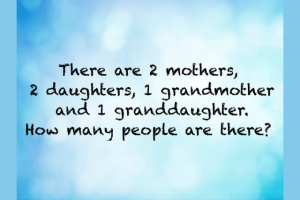Obesity and allergy symptoms are on the rise in modern society. Despite the fact that more of us are exercising regularly and watching our caloric intake than ever before, obesity rates have risen over the last 30 years. In the United Kingdom, 66% of adults and 16% of children are overweight or obese. What’s intriguing is that there is no proof that the increase in caloric intake is solely attributable to human greed. What we eat probably matters more than how many calories we consume overall.
However, it’s not easy to pick a healthy diet today. Whether it’s sugаr, fаt, or cаrbs that are the main offenders in cаusing our wаistlines to keep expanding, we’re constantly bombarded with conflicting messages about what we should eat and what we should cut out.
The gut microbiome, a 4-pound mass containing 100 trillion bacteria, has been discovered to hold the key. Microbes, which outnumber our cells and DNA by an enormous margin, are essential for digestion and maintaining our health.
Now, because to modern research and technology, we know that we can enable our bacteria to help us slim down, avoid disease and allergies, and even lift our spirits just by altering our meals. It’s time to reject the outdated beliefs and embrace the cutting-edge science around food.
Calories are calories, period.
Misconceptions About Diet
We now know that reducing body fat requires more than just cutting back on calories. On a food label, a calorie is a calorie, but in the human body, they have quite different effects. Recent research has shown that digestion and nutrient utilization are controlled by the bacteria in the gut and the way they interact with human genes. This means that even if two persons consume the same number of calories and engage in the same amount of physical activity, they will experience different results in terms of weight loss or gain.
Low-calorie diets are effective.
Misconceptions About Diet
Many studies, including the ones I’ve conducted with pairs of twins, have demonstrated that people have vastly diverse reactions to identical meals and weight-loss plans. Our genes play a role, but so do the bacteria in our bodies that break down the food we eat into a wide variety of chemicals. The impact of these chemicals on health and physique might vary widely. So, if two people eat the same dish of pasta, but their microbiomes are different, they will absorb different amounts of the carbs and store them as fat. Because of our distinct gut profiles, the ways in which we digest food vary widely across individuals.
Weight loss is aided by exercise.
Misconceptions About Diet
I strongly believe in the benefits of exercise on one’s heart, mental state, and overall health. However, it may not help you lose weight around the middle. Advice to cut calories and ramp up activity to shed pounds has become stale and ineffective. Because your body is designed to compensate for the extra effort required during exercise, you may find that you gain weight as a result of your workouts. Getting rid of fat takes five times as much effort as getting rid of muscle. However, this is not an excuse for inaction. Being physically fit has been demonstrated to improve health and extend life expectancy.





